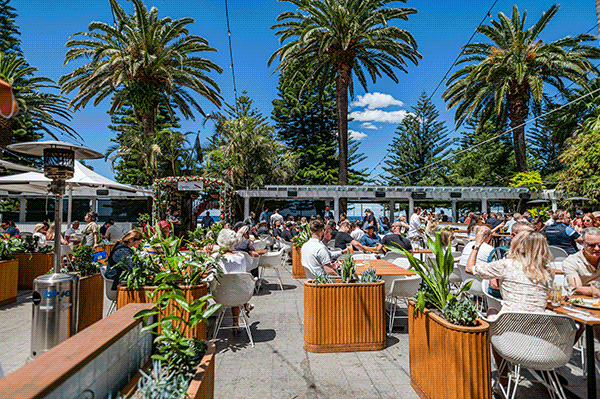Planning body chair slams Coogee Bay Hotel over noise condition dispute

A battle is brewing over the redevelopment plans for the Coogee Bay Hotel, with the chair of a powerful Sydney planning body launching a scathing attack on the venue's efforts to have key sound conditions removed. Carl Scully, who heads the Sydney Central Planning Panel, did not mince words as he accused the hotel's planning representatives of “refusing to play ball”, “waffling on”, and having to be “dragged to the alter” in a heated exchange regarding the noise modelling requirements. These requirements were initially put in place to safeguard nearby residents from excessive noise impacts stemming from the expanded venue.
The ambitious redevelopment project aims to transform parts of the waterfront hotel, replacing them with multi-storey units, retail spaces, a dining precinct, outdoor terraces, a new hotel wing, and a function centre. When the development was initially approved, a crucial condition was imposed: the hotel must complete a comprehensive noise masterplan. This plan was intended to ensure that the increased activity at the venue would not lead to noise and other disturbances in the popular beachside suburb.
However, nearly a year after the development plans received the green light, the Coogee Bay Hotel is now seeking to have this very condition scrapped. The venue argues that the noise masterplan is unnecessary and “extremely onerous”. This move has ignited strong opposition from multiple residents and Randwick Council, which maintains that the noise condition was specifically designed to "protect the amenity" of the local community.
Despite the pushback, the Coogee Bay Hotel has asserted that the removal of the noise condition will "not result in any adverse impacts" and that the venue will "still operate within relevant noise criteria."
Scully, a former state Labor MP and Transport Minister who now chairs the Sydney Eastern City Planning Panel – the body responsible for determining large development projects in inner Sydney – expressed serious concerns about the hotel's request, describing their plans as lacking adequate justification and detail.
He further stated that the venue's reluctance to provide crucial documents related to noise modelling had "raised suspicions" about the true impact of the development on the surrounding community. "Once you were not prepared to hand the noise modelling data that had raised suspicions about what the venue knew about the (noise) impacts of the proposed usage," Mr. Scully stated emphatically.
"And not wanting to complete a noise mitigation plan just raises the suspicion."
Visibly frustrated, Scully added, "I feel like this has had all the molars pulled out from the back of the mouth (and) it’s very frustrating – this could have been resolved yonks ago."
During the public meeting, attended by concerned residents and Randwick Council staff, Mr. Scully questioned the hotel's apparent change of heart, asking why they had initially agreed to comply with the noise condition only to later seek its withdrawal.
Jacqueline Parker, a planning representative for the Coogee Bay Hotel, offered a different perspective, stating that the venue had always intended to comply with noise conditions. However, she explained that in working through the details of what it required, they had come to the conclusion that it was “extremely onerous”.
Adding another layer to the dispute, the Coogee Bay Hotel has initiated legal action against Randwick Council in the Land and Environment Court, seeking to have the noise condition overturned.
A court hearing to consider the matter is reportedly scheduled for late July.
Jonathan Jackson, 8th April 2025







